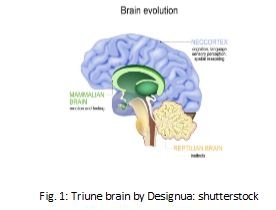
Amani (age 16) sits in her geography lesson, doodling and staring out the window. She fidgets, and squirms in her seat. She just can’t seem to sit still. She bites her nails and fiddles with her hair clip. Miss Green has had enough. “Look Amani, how on earth are you going to pass your GCSEs. You just don’t concentrate on the work. Your mind is always some place else and just stop fidgeting!”
Unbeknown to Miss Green there is a neuroscientific and physiological explanation for why Amani is like this. This year her parents split up. It happened overnight. She was devastated. She had no idea they were even unhappy. Amani told her friends that her world crash-landed that day. She’s had to move to a new flat too. She has not been able to sleep since it all happened and feels extremely anxious most of the time.
The neurobiological fall-out of unprocessed trauma
When a child or teenager experiences a shocking event in their lives, and there is no emotionally available adult to help them think and discuss how they feel about it (known as processing), adverse neurobiological changes happen that make learning very difficult. Evidence-based research demonstrates that raw and painful emotions derail learning due to poor activation of the frontal lobes in the neocortex (see below), and high activation of the emotion centres in the old mammalian and reptilian parts of the brain (flight/flight/freeze behaviours). Frontal lobes are key to focused attention and concentration 1

Moreover, when we learn something, new synaptic connections form in the neocortex. The more complex and dense the synaptic connections in our frontal lobes, the more sophisticated our cognitive intelligence. 2 Stress from unprocessed painful life events block the forming of new synaptic connections in the neocortex, and suppress the strengthening of existing synaptic connections, thus derailing both the child’s ability to learn and the consolidation of what they have learnt.3

The Physiological fall-out of unprocessed trauma
The fact that Amani can’t sit still and is constantly squirming in her seat is the physiological fall-out of unprocessed trauma.
Stress physiology research shows that a shocking life event without social buffering (someone being there to help the child make sense of what has happened) can result in chronic arousal of the body’s autonomic nervous system 4. The means the release of too high levels of stress hormones: adrenaline, cortico-releasing factor ( CRF) and cortisol.